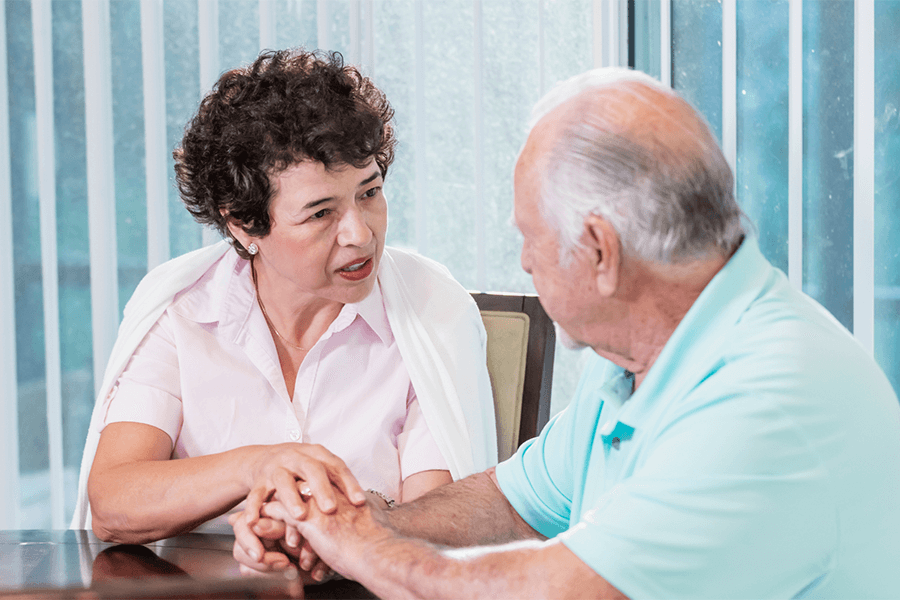Helping your family and loved ones come to terms with your death
Australian priest and theologian, David Ranson spent some time as a Hospital Chaplain in Melbourne. In reflecting on this experience, Ranson recounts:
‘I recall in the space of one week alone attending 24 deaths. This experience has inevitably given me a familiarity with death. Yet, one of the things that would strike me-in hospital chaplaincy particularly-is that those unfamiliar with death would understandably struggle with its natural processes.’
‘Ignorance of death can make us fearful of it. Indeed, we are largely removed death from our daily lives, often relegating it to the medical context rather than integrating it into our family circle. The overwhelming majority of people die in hospital. Gone are the days when someone may have died in the same bed in which they were born-which wonderfully was the experience of the father of a friend of mine. Many of us may not have the experience of being with someone dying until well into our own life, if at all. Many of us rarely see death, if at all.’
Of all the worries you may have about death, concerns about your loved ones will probably be high on your list. Concerns we might have may include worries for the welfare of our family and friends in the future, not wanting to be a burden or even wanting to resolve unfinished business in our relationships.
As a result, it may be that as well as attending to our own needs, you are also thinking of friends and family at this time. You may have worries about how the lives of those closest to you will be affected by your death and their grief.
How do we balance these natural worries, without being consumed by them in what life we have left to live? Worries about being a burden are natural; wanting to be well and well cared for, treated with dignity and to be able to express your needs and emotions to family and friends is the natural human response.
Some people discover that even as they are starting to live their dying experience, their family and friends find it hard to respond to what is happening and naturally they will react. As a result, they may not want to talk about your approaching death, either because they find it upsetting – or they worry about upsetting you.
While it’s important for you to feel that you can talk openly with those around you, some people find it easier to confide in someone other than a close family member. Perhaps a companion, spiritual adviser, counsellor or even a complete stranger. You might find this a helpful first step in opening up wider conversations with those closest to you.
Of course, talking openly with your loved ones may not be straightforward for other reasons. Perhaps there are rifts within the family, and/or difficult relationships that have developed over the years. You may feel like you would now like to resolve these differences.
Many people come to the end of their life with unfinished business. Estrangements within the family are very common. The enormity of what is happening to you can often make former arguments and feuds seem insignificant. This time could be a time for reconciliation and/or resolution.
Some people who are dying can feel that others are making too much fuss around them, and that actually, they need and would appreciate some time alone.
At this difficult time, it’s important to remember the power of communication.

